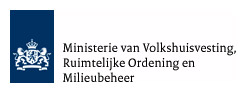WECF at COP 22: A Gender Sensitive NAMA
The Austrian Environment Agency and WECF International, in cooperation with Greens Movement Georgia and CREDO Bank, supported by the Georgian government, submitted proposal for NAMA Support Program to the NAMA Facility
07.11.2016 |

The Austrian Environment Agency and WECF International, in cooperation with Georgian partner organisations Greens Movement and CREDO Bank, and with support by the Government of Georgia, have submitted a proposal for a NAMA Support Program to the NAMA Facility, in October 2016 .
Summary of the Gender Sensitive NAMA
The gender-sensitive NAMA „Efficient use of biomass for equitable, climate proof and sustainable rural development„ has been registered by the Georgian government with UNFCCC. It is mentioned in Georgia’s INDC and included as important mitigation measure in the 3rd NC and 1st BUR, integrated in the NEAP, in 6 of the 7 regional development plans, 3 SEAPs, and drafts of LEDS, Energy Strategy and the national forestry strategy.

This transformation of the rural domestic energy sector towards efficient biomass-use from sustainably managed forests will be achieved by renewable and energy efficient technologies for households and public buildings, provided by supporting 7 energy cooperatives. These will build the capacity of local experts and will create 700 jobs in the coming 5 years, aiming at gender parity and civil participation at all levels. This business model of a network of energy cooperatives will attract private finance through membership (shareholders) and will achieve economies of scale through the coordination done by a national „umbrella cooperative“. Cooperatives are democratic structures and platforms for civic participation in the national energy transition. Gender parity is not only aimed at in the energy cooperative institutional structures, but also in the boards, as demonstrated in the first 4 energy cooperatives which are already in operation.
In cooperation with the social-responsible parts of the banking sector and international donors, a financial mechanism will ensure that also the lowest-income households will be able to invest in the promoted low-carbon technologies replacing unsustainable firewood. For the first 45,000 units - which cost between 250 and 500 euro each - about 17 million Euro will thus be contributed by private sector households, and another 4.5 million Euro through a subsidy scheme which will be phased-out by the end of the period. Domestic public funding of about 2 million Euro will contribute to capacity building and an environmental awareness raising campaign on the need for sustainable forest management and low-carbon development and to forest inventories. The combined measures will have a greenhouse gas reduction potential of up to 450,000 tCO2 equivalent per year by 2031.
A side event on the gender sensitive NAMA in Georgia will take place, November 18 at the COP 22 in Marrakesh
Related News
Rural Georgians look to the sun to ease energy poverty
Video (6 min): by Deutsche Welle & Maria Lesser on our project in Georgia
04.06.2018
Implementing Agenda 2030 in Georgia: Where Are We Now?
WECF organised with Georgian government and the UN a workshop on the Sustainable Development Goals in Tbilisi, 19-21 February 2018
22.02.2018 | Tbilisi, Georgia
Round table discussion Violence Against Women and Economic Development
The round table treated the topic of Violence against women and Economic Development
13.12.2017
Sustainable Development Goal # 5 Gender Assessment in Georgia
This research was conducted by the organization We Research within the auspices of the project ‘’Women 2030’’ funded by the European Union and implemented by WECF International
27.09.2017
Feasibility study of gender-sensitive energy cooperatives in Georgia, Ukraine, Armenia and Moldova
New report by WECF offers report offers an overview of the feasibility of gender-sensitive energy cooperatives in Georgia, Ukraine, Armenia and Moldova.
12.05.2017





































